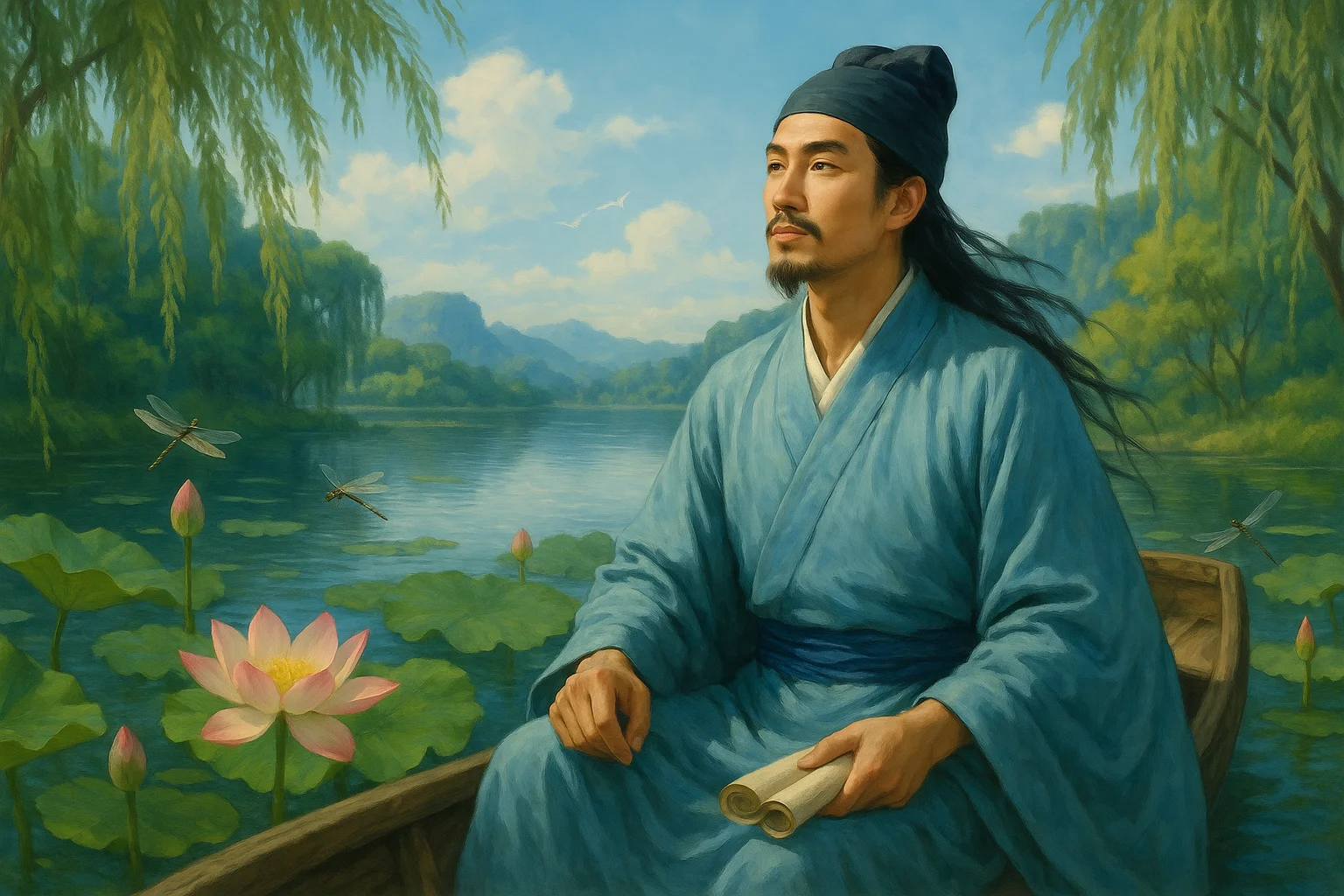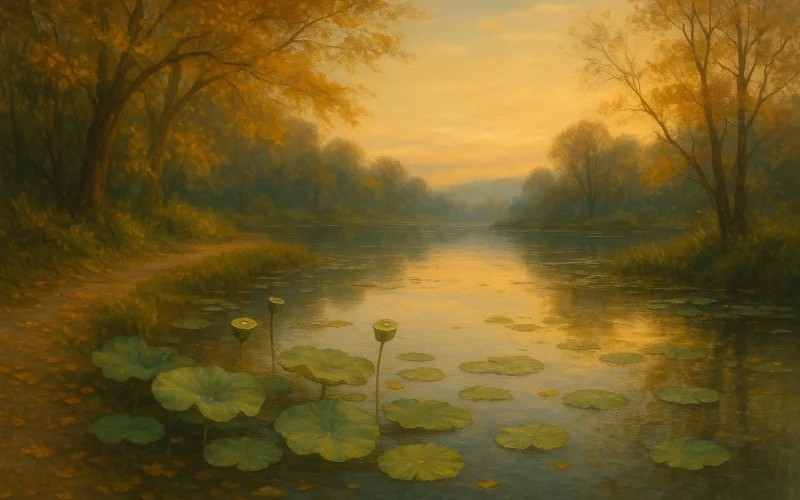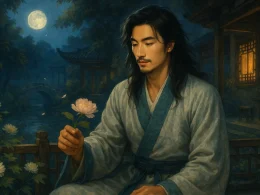Willow strands sweep silver pond—a hundred feet long,
Clad in pale gold, refusing green’s strong song.
Not that branches dip to kiss the water’s face,
But drowned shadows stretch in liquid space.
Original Poem
「新柳」
杨万里
柳条百尺拂银塘,且莫深青只浅黄。
未必柳条能蘸水,水中柳影引他长。
Interpretation
Composed in 1178 during Yang Wanli's artistic awakening at age fifty-two, this lyric embodies his "Chengzhai Style" breakthrough—where ordinary sights ignite extraordinary vision. Capturing spring's first whispers through willow imagery, the poem dances between physical reality and liquid reflection, transforming riparian botany into kinetic art.
First Couplet: "柳条百尺拂银塘,且莫深青只浅黄。"
Liǔ tiáo bǎi chǐ fú yín táng, qiě mò shēn qīng zhī qiǎn huáng.
Willow strands—a hundred feet—
caress the silvered pond,
sparing us deep green
for this pale gold.
Yang's opening hyperbole ("hundred feet") stretches perception vertically, while "silvered pond" horizontally mirrors the sky. The chromatic restraint ("pale gold" 浅黄) honors spring's tentative debut—nature withholding mature hues like a painter conserving pigment. This is botanical minimalism at its most evocative.
Second Couplet: "未必柳条能蘸水,水中柳影引他长。"
Wèibì liǔ tiáo néng zhàn shuǐ, shuǐ zhōng liǔ yǐng yǐn tā zhǎng.
Don't assume the boughs
can dip the surface—
their aquatic shadows
stretch them longer.
Here, Yang's physics-defying insight dazzles: reflections don't merely duplicate reality but actively "stretch" (引) their subjects. The pond becomes collaborator rather than canvas, its liquid dynamics enhancing the willows' reach. This optical illusion reveals Yang's core aesthetic—nature as co-creator with its own artistic agency.
Holistic Appreciation
The poem constructs a quadruple exposure: actual willows (pale gold), their exaggerated length (hundred feet), their reflected twins (stretched by water), and the poet's perception (synthesizing all). Yang dissolves boundaries between object and image, substance and shadow, in a proto-cinematic play of light and form.
This lyric exemplifies his "sudden enlightenment" (忽若有悟)—where observation becomes participation. The willows aren't passive subjects but active partners with their reflections, just as the poet collaborates with nature to create art. The "silvered pond" (银塘) functions as both mirror and muse.
Artistic Merits
- Hyperbolic Precision
"Hundred feet" (百尺) quantitatively exaggerates while qualitatively capturing the willows' cascading grace. - Chromatic Restraint
"Pale gold" (浅黄) defines spring's nascence more vividly than any riotous color could. - Reflective Alchemy
The shadows' active "stretching" (引) redefines reflection as transformative process rather than passive replication. - Kinetic Syntax
Verbs like "caress" (拂) and "stretch" (引) inject motion into still imagery, anticipating modern stop-motion techniques.
Insights
Yang Wanli teaches us to see nature as co-artist. His willows don't merely grow—they perform, their reflections actively composing alongside light and water. This ecological perspective resonates deeply in our age of environmental consciousness, reminding us that beauty emerges from collaboration between observer and observed.
For creators, it demonstrates how constraints (early spring's limited palette) breed innovation. By focusing on "pale gold" against "silvered" water, Yang proves radical simplicity can eclipse decorative excess. His willows ultimately symbolize artistic growth itself—stretching beyond literal reality through reflective imagination.
About the Poet

Yang Wanli (杨万里 1127 - 1206), a native of Jishui in Jiangxi, was a renowned poet of the Southern Song Dynasty, celebrated as one of the "Four Great Masters of the Restoration" alongside Lu You, Fan Chengda, and You Mao. He attained the jinshi degree in 1154 and rose to the position of Academician of the Baomo Pavilion. Breaking free from the constraints of the Jiangxi School of Poetry, he pioneered the lively and natural "Chengzhai Style," advocating for learning from nature and employing plain yet profound language. His poetry, often drawing inspiration from everyday life, profoundly influenced later schools of lyrical expression, particularly the Xingling (Spirit and Sensibility) School.












